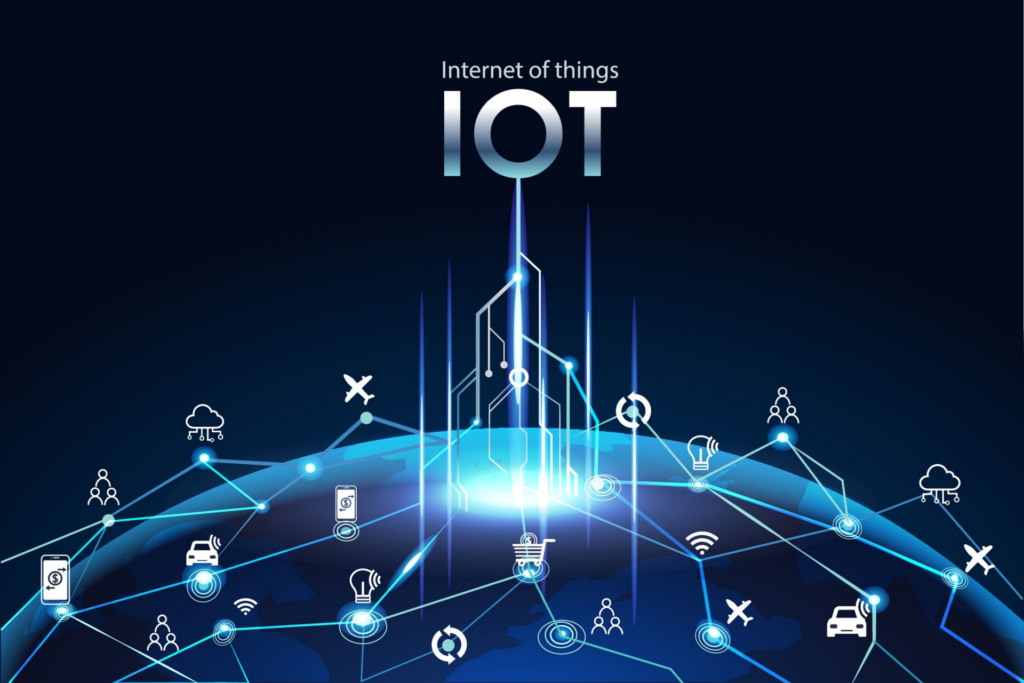The realm of the Internet of Things (IoT) has experienced exponential growth in recent years, with more devices and applications being connected and communicating with one another than ever before. This rapid expansion has driven a range of industries to recognise the potential benefits and opportunities provided by IoT technology, as well as the importance of integrating the right components into their devices and systems.
A crucial element in the functionality and reliability of IoT devices lies in their memory solutions. Industrial memory products, in particular, are essential to the efficacy of IoT applications, as they often demand robust, high-performance, and energy-efficient storage solutions that can handle the influx of data generated by a myriad of interconnected devices. By fully understanding the role that industrial memory plays in IoT applications, businesses can make informed decisions about which memory solutions are best suited for their specific requirements and goals.
In this blog post, we will explore the key aspects of industrial memory solutions within the growing IoT landscape. We will examine the features that make industrial memory products ideally suited for IoT applications, discuss the challenges and expectations associated with navigating the IoT environment, and highlight the benefits of using specialised memory solutions in IoT apps and devices. By delving into these crucial topics, Nexus aims to provide clear guidance and valuable insights for our clients working with IoT technology, ensuring they have the knowledge and understanding required to make informed decisions about their memory needs.
Key Features of Industrial Memory Products in IoT Devices
Numerous features of industrial memory products make them ideal for IoT applications, ensuring that these solutions cater to the distinct requirements posed by IoT environments. Some of the most significant features include:
1. Robustness and Durability: IoT devices often operate within harsh or unpredictable environments, necessitating memory solutions that can withstand factors like extreme temperatures, moisture, vibration and shock.
2. High Performance: IoT applications typically demand rapid data processing and access, which can be achieved through the use of high-speed memory products that offer low-latency and increased bandwidth capabilities.
3. Energy Efficiency: As IoT devices often run on battery power or require energy-efficient operation, industrial memory solutions with reduced power consumption are essential in prolonging battery life and ensuring overall efficiency.
4. Scalability: The pervasive growth of IoT devices calls for scalable memory solutions that can accommodate expanding data volumes and increased connectivity.
Challenges and Expectations in IoT Memory Solutions
Various challenges and expectations must be considered when selecting and implementing memory solutions for IoT applications, ensuring that these components meet the needs of a constantly evolving landscape:
1. Data Storage and Management: The surge in data generation within IoT networks calls for efficient data storage and management solutions that can deal with the increasingly complex datasets and ensure data integrity.
2. Security and Privacy: With the heightened concerns surrounding data security and privacy, IoT memory solutions must incorporate features to protect sensitive data from hackers and other threats, including encryption and authentication mechanisms.
3. Integration and Compatibility: Seamless integration of memory products into IoT devices and systems is vital, requiring compatibility with existing hardware, firmware, and additional components.
4. Cost-effectiveness: Striking the right balance between performance, durability, and price is essential in ensuring that businesses can achieve their IoT goals while keeping costs manageable.
Best Practices for Selecting Industrial Memory in IoT Applications
To make informed decisions about memory solutions for IoT applications, businesses should follow some best practices that can help them navigate the myriad of options available on the market:
1. Assess the Application Environment: Consider the intended deployment environment for the IoT device, including climate, potential physical stressors, and power supply constraints, to determine the ideal memory solutions tailored to these factors.
2. Analyse Performance Requirements: Identify the performance demands of the IoT application, such as data transfer speeds, storage capacities, and access times, to select memory products that can meet these expectations without overextending.
3. Evaluate Security and Data Protection Needs: Assess the data security requirements specific to your IoT application, particularly when handling sensitive information, and choose memory products that offer robust protection features to ensure data privacy and integrity.
4. Consider Scalability and Future-Proofing: Opt for memory solutions that can easily be scaled or upgraded to accommodate potential growth in data volumes or connectivity, ensuring that your IoT devices remain future-proof and adaptable to changing needs.
Benefits of Investing in Industrial Memory Products for IoT Applications
By selecting the right industrial memory products for IoT applications, businesses can reap several benefits that contribute to the overall success and longevity of their IoT devices and projects. These include:
1. Enhanced Reliability: Industrial memory solutions are designed to endure harsh conditions and maintain consistent performance, ensuring that IoT devices remain reliable throughout their operational lifespan.
2. Improved Performance: High-quality memory products designed for IoT applications offer superior performance, enabling rapid data access and processing, reduced latency, and optimised functionality in line with IoT demands.
3. Greater Security and Data Protection: Industrial memory products with advanced security features provide a robust defence against cybersecurity threats, ensuring that sensitive data remains secure and uncompromised.
4. Future-Proof Infrastructure: Incorporating scalable and upgradeable memory solutions into IoT devices allows businesses to adapt to evolving technologies and market trends, without requiring expensive or extensive replacement of hardware components.
Conclusion
As IoT devices and applications continue to proliferate across various industries, it is crucial for businesses to comprehensively understand the role that industrial memory products play in building robust, reliable, and efficient IoT infrastructures. By staying abreast of IoT trends and advancements, we endeavour to support businesses in unlocking the full potential of their IoT applications, empowering them to succeed in the ever-evolving digital world.
Nexus recognises the importance of industrial memory products within the IoT landscape. That’s why we offer a wide range of memory solutions , specifically designed for use in IoT environments. From encrypted memory sticks to high-endurance solid-state drives, our products are engineered to deliver superior performance, durability, and security, ensuring that your critical data remains safe and accessible at all times. Let us help build a robust, reliable, and efficient IoT infrastructure, empowering you to succeed in the digital age. Contact us today to schedule a consultation!

